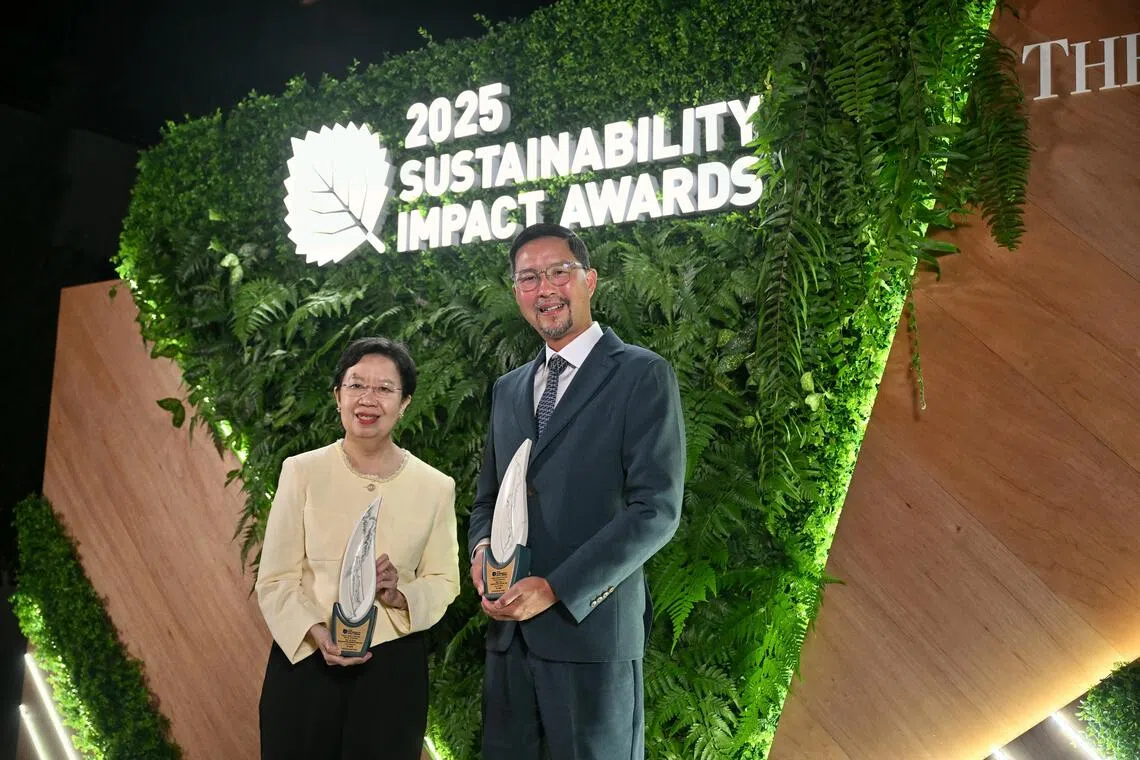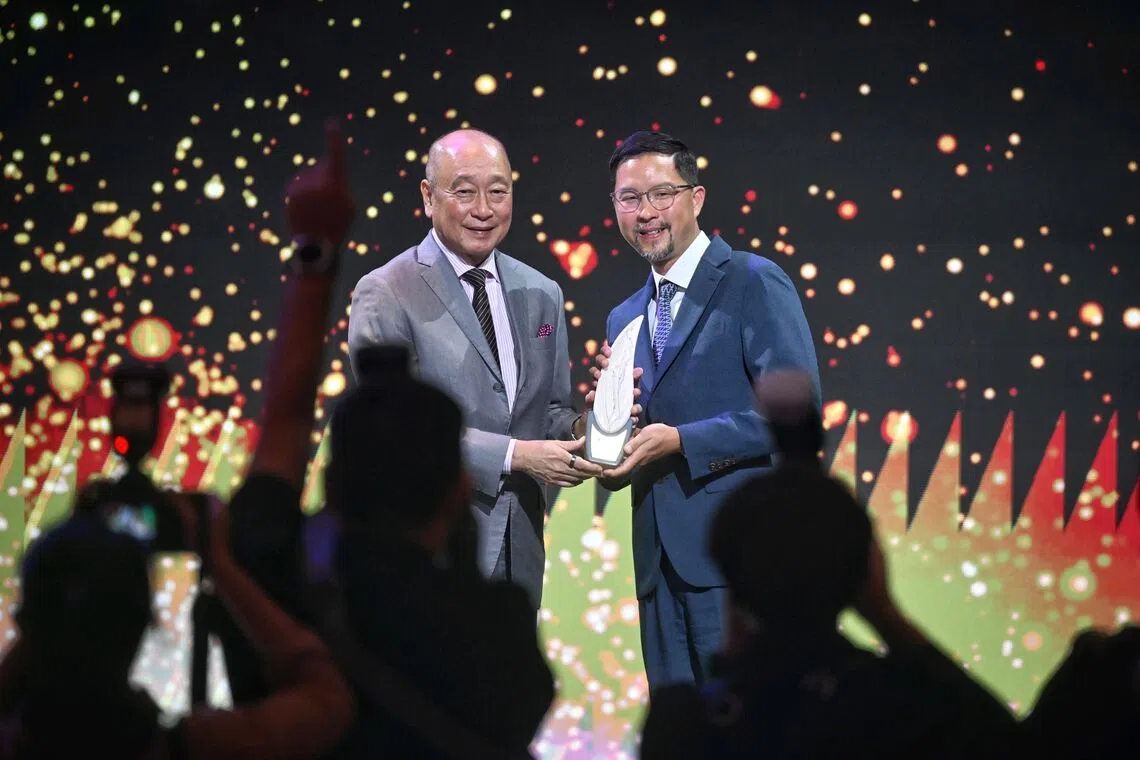SMU president bags award for making sustainability part of university’s DNA
Sign up now: Get ST's newsletters delivered to your inbox

Impact Leader of the Year award recipients Lily Kong and Bjorn Low at the Sustainability Impact Awards ceremony on Sept 25.
ST PHOTO: ARIFFIN JAMAR
SINGAPORE – Singapore Management University (SMU) president Lily Kong clinched a top accolade at the annual Sustainability Impact Awards for ensuring every undergraduate takes classes on sustainability to nurture the next generation of green talent.
On Sept 25, Professor Kong, 60, was named Impact Leader of the Year alongside Mr Bjorn Low, co-founder of social enterprise Edible Garden City.
The annual awards, organised by The Business Times and UOB, also honoured nine individuals and companies that demonstrate leadership in creating impact by spearheading sustainability efforts.
They include Keppel, ComfortDelGro and FairPrice Group.
In her six years leading SMU, Prof Kong has ensured that sustainability and going green are part of the DNA of the campus, students and staff.
Understanding environmental regulations and how they influence business practices, and coming up with solutions to solve firms’ sustainability challenges, are among the skills that the university aims to instil in its students.
Besides advocating compulsory sustainability education at SMU, Prof Kong helped establish the Singapore Green Finance Centre and SMU Urban Institute
Students enrolling from 2024 must achieve intermediate mastery in sustainability
Making sustainability education a graduation requirement for every student was not an easy decision, but it was the right one, Prof Kong said.
“I am proud of this because it creates a multiplier effect: Our graduates will carry these values into their professions and communities, shaping companies, influencing policy and building sustainable habits in their own families,” she told The Straits Times.
At SMU, student groups have worked to reduce food waste and single-use disposables on campus.
University policies have also been revised to support greener business travel and purchasing decisions.
“Sustainability cannot be about buildings, research or the curriculum alone. It is all of these things, together with human well-being,” Prof Kong said.
A Lee Kong Chian chair professor of social sciences and a geographer, she is also the first Singaporean woman to serve as president of any university in Singapore.
As for Edible Garden City’s Mr Low, he has led the creation of more than 280 edible gardens across the island, including in schools, companies and hotels.
The 45-year-old also represented Singapore at Expo 2020 in Dubai, showcasing Singapore’s urban farming model on the global stage.

Edible Garden City co-founder Bjorn Low (right) receiving the Impact Leader of the Year award from Mr Wee.
ST PHOTO: ARIFFIN JAMAR
Keppel bagged the Impact Enterprise of the Year award for taking renewable energy and climate challenges into account as part of its business transformation.
The company has embarked on clean electricity import projects and is building Singapore’s first hydrogen-compatible power plant
Four other large enterprises – ComfortDelGro, FairPrice Group, hospitality group The Ascott and UOL Group-Pan Pacific Hotels Group – received the Impact Enterprise Excellence Award.
FairPrice Group has been electrifying its logistics, while close to 60 per cent of ComfortDelGro’s fleet comprises cleaner energy vehicles.
For small and medium-sized enterprises, excellence awards were given to tech firms Pollen Tech and WeavInsight.
Pollen Tech helps brands recover costs from excess inventory while reducing waste, and helps companies predict demand accurately to prevent overstocking.
Speaking at the award ceremony at the Pan Pacific Orchard, Minister for National Development Chee Hong Tat urged companies to take practical, concrete steps to facilitate the development of new technologies that can make a difference in reducing carbon emissions.
He noted that these emissions-reducing efforts must also be financially sustainable for the impacts to be long-lasting.
“Many of the things that we do, we won’t see results immediately. Some of the investments that we put in may produce good outcomes only over 10, 20 years, or even further away,” Mr Chee said.
“But if we think about the long-term impacts of our actions today... I think our perspective will change. (As) the Native American proverb says: ‘We do not inherit the earth from our ancestors, we borrow it from our children.’”



